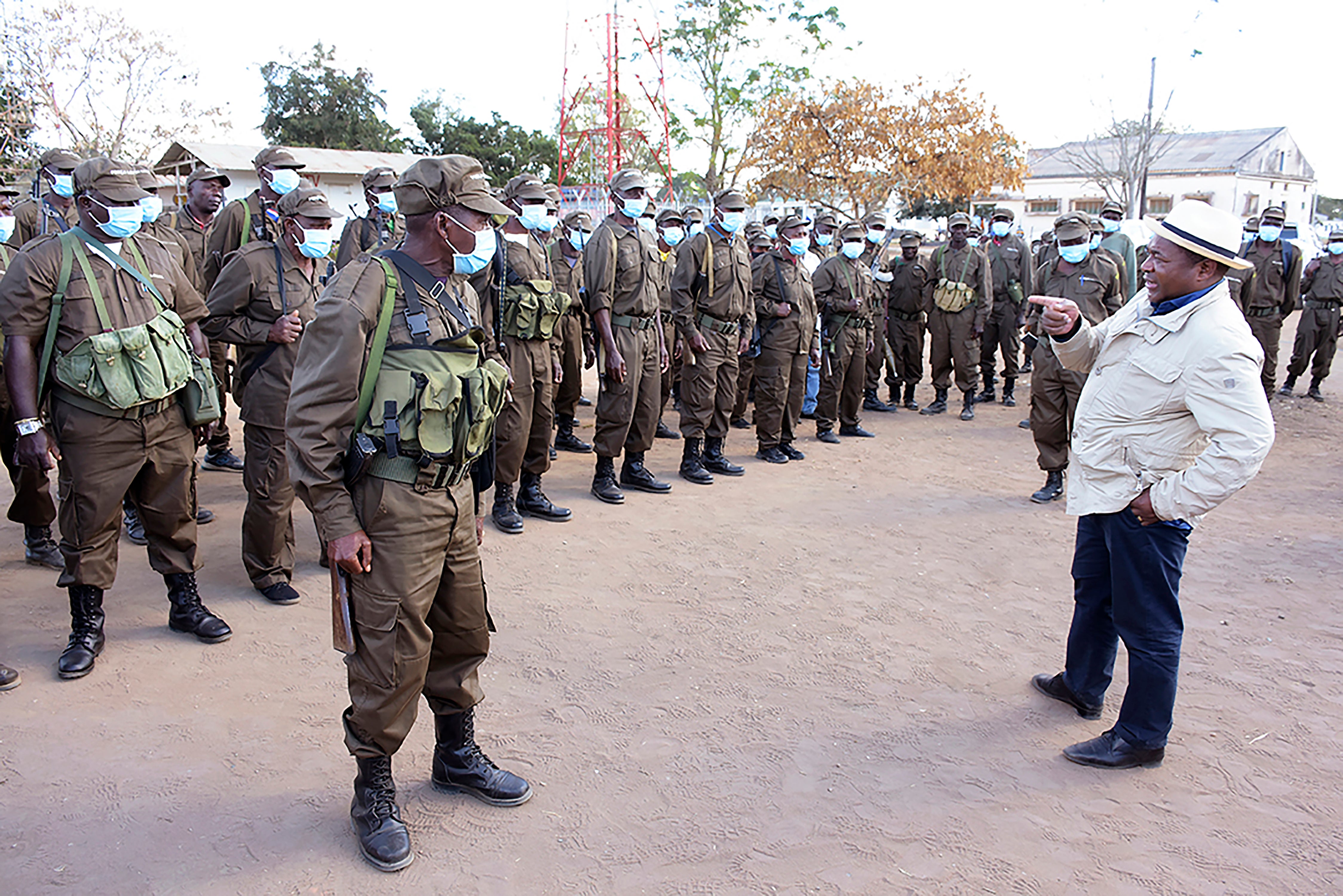Regional forces join offensive against Mozambique extremists
Rwandan troops have joined Mozambican forces to launch a major offensive against Islamic rebels in northern Mozambique as more troops arrive from South Africa and other neighboring countries to battle the insurgency

Your support helps us to tell the story
From reproductive rights to climate change to Big Tech, The Independent is on the ground when the story is developing. Whether it's investigating the financials of Elon Musk's pro-Trump PAC or producing our latest documentary, 'The A Word', which shines a light on the American women fighting for reproductive rights, we know how important it is to parse out the facts from the messaging.
At such a critical moment in US history, we need reporters on the ground. Your donation allows us to keep sending journalists to speak to both sides of the story.
The Independent is trusted by Americans across the entire political spectrum. And unlike many other quality news outlets, we choose not to lock Americans out of our reporting and analysis with paywalls. We believe quality journalism should be available to everyone, paid for by those who can afford it.
Your support makes all the difference.Rwandan troops have joined Mozambican forces to launch a major offensive against Islamic rebels in northern Mozambique as more troops arrive from South Africa and other neighboring countries to battle the insurgency.
Less than two weeks after landing in Mozambique, the 1,000 soldiers from Rwanda fought alongside Mozambican troops to regain control of Awasse, a strategic town in northern Cabo Delgado province, according to the Mozambican government.
“We have attacked and re-occupied the enemy position at Awasse," President Filipe Nyusi said in a broadcast to the nation earlier this week. He said three other towns also were retaken from the rebels.
The new offensive is seen as a drive to regain control of Mocimboa da Praia, the Indian Ocean port that the rebels have held for nearly a year.
The joint forces have also been fighting the rebels in Palma and appear to be trying to secure the nearby Afungi peninsula where the French firm Total was forced to stop operations in its $20 billion liquified natural gas project, according to Cabo Ligado, a newsletter about the extremist violence.
Rwanda's forces killed 14 extremists, that country's army spokesman announced Thursday. Mozambican media report that both sides have suffered casualties.
The campaign against the rebels will be further supported by troops arriving from South Africa, leading the contingent being sent by the 16-nation Southern African Development Community to assist Mozambique.
South Africa, the regional powerhouse, will send about 1,500 troops at a cost of nearly 1 billion rand ($68 million), President Cyril Ramaphosa informed parliament this week. A South African general is to lead the regional force.
Zimbabwe announced Thursday that it will deploy 300 soldiers as trainers and advisers, and Botswana sent 300 troops to Mozambique earlier this week. Angola and Botswana have also announced they are sending forces.
The countries of southern Africa are giving military support to Mozambique to try to prevent the extremist rebels from expanding their foothold in the region.
Since its start in 2017, the insurgency has been blamed for more than 3,000 deaths, according to the Armed Conflict Location and Event Data project. The rebels, allied to the Islamic State group, have beheaded scores of people and imposed Shariah law in areas they have seized. More than 800,000 people have been displaced by the conflict and nearly 1 million people need food aid, according to the U.N. World Food Program.
The U.S. has sent 12 special forces officers to help train Mozambique’s military, and the European Union is to send a military training mission to build on a training program provided by Portugal, according to a recent report by Cabo Ligado, a project led by ACLED to research the conflict.